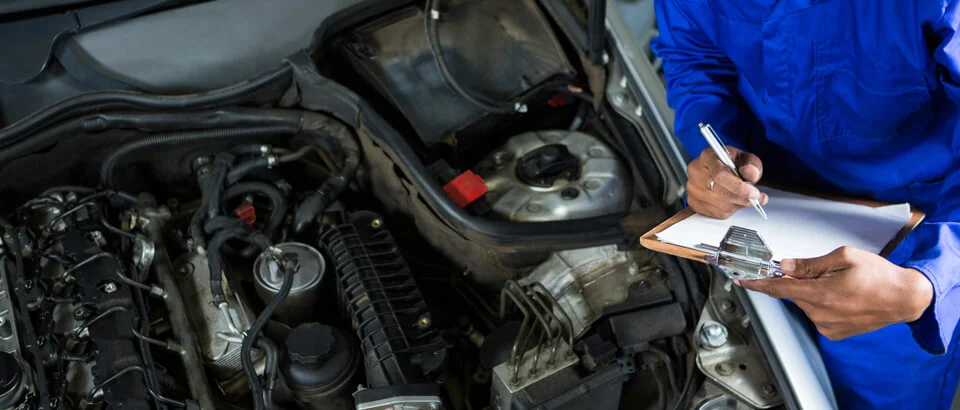Some Myth and Facts about Car Battery
The car battery is the booster that cranks and starts the engine of your vehicle, a car battery installation plays a vital role in your vehicle’s electrical system since it supplies power to the engine. It is a power source that provides a jolt of electricity necessary to start your vehicle and all its electric components.
Besides the basic facts associated with the car battery, there are many misconceptions surrounding car batteries that need to be separate so that by adding some tips you could take care of this hugely important part of your car.
Car battery Should Last for At least Six Years: (Myth)
A car battery should last for about 6 years, however, that all depends on couples of things, where you live and how you been treating it. Some manufacturers recommended change car battery service every four years. While others say that it is okay to wait for 6 years to replace the car battery.
Like most car parts, multiple discharge or recharge cycles shorten any battery’s life also extreme weather conditions significantly impact on battery’s life and performance. One of the reasons to wear out the battery is most models today utilize a liquid electrolyte solution to hold the charge which eventually affected by hot and cold temperature.
The car battery should be checked once in a year: (Myth)

The battery of your vehicle works really hard to keep your car functioning optimally and it might get damaged in the process. A regular car battery maintenance will help it to be on top shape and improved performance and durability. You can consider taking your car to the experienced and professional car maintenance service provider so that they can check the alternator and terminals charge rate, clean the battery and remove the corrosive deposits that will keep your car battery in good working condition.
So, it is advisable to take your car for battery maintenance at least once on every six months or you can contact to car service providers who can come at your doorstep in case you don’t have time to take your car to the car maintenance workshop.
Elevating Self-Discharge: (Fact)
At a given time discharging & charging is always occurring inside a battery due to electrolyte solution present inside the battery. Self-discharge of battery is taking place even if the battery is not connected to anything. Also, the rate of self-discharge depends on the ambient temperature and battery type.
If the temperature is above 55 degree Celsius, the battery will self-discharge more rapidly and the low state-of-charge can be caused due to short trips that aren’t long enough for the vehicle’s charging system that recharges the battery.
To keep the battery charged enough to start the engine of your vehicle, it is important the engine operation be more than 15 or 20 miles or for keeping battery’s capacity high enough to operate the starter, the battery has to be charged with a battery charger when the vehicle is not in use.
Jumpstart Your Car Battery is the Easiest Way to Get it Recharged: (Fact)
There is a good chance you haven’t driven your car in a few weeks if your car only sit unused for a long time then the chances of dead car battery increases. In case your car battery is indeed dead, the fastest way to revive it is given a car battery jump start. This will take less than 5 mins and only requires a set of jumper cables and another vehicle that’s running.
A car battery serves a very important purpose to initiate the ignition process whenever you start your car or you can say a battery is a power source of the vehicle’s starter motor which requires a fairly high electric current to work when the battery is incapable of starting the vehicle, it cannot provide enough electric power to start the motor then there is need to jump-start a car battery by providing an extra electric charge.
The Weather has a Significant Impact on Car Battery: (Fact)

Temperature fluctuations significantly affect the life and quality of the vehicle’s battery, whether it’s hot or cold the change in temperature plays a vital role in the health of a car battery. Extreme heat can have a serious impact on a car’s ability to run efficiently. When the temperature rises outside the car it also drives up the temperature underneath the hood of a car and when the temperature around the battery starts to climb, this accelerates the onset of car battery failure.
In the presence of excessive heat the chemicals present inside the battery act up badly, it faces heavy dehydration due to heat as the evaporation of internal fluids is continuous and when the liquid decreases, it leads to decrease the conductivity and charging capacity of the battery.
Temperatures take a toll on the car battery, winter temperature forcing it to work overtime. During winter condition a car battery gets drastically more worn. According to the survey, at 32 degrees Fahrenheit, a car battery loses about 35 percent of its strength and at 0 Fahrenheit, a car battery loses about 60 percent of its strength. Cold weather diminished the battery’s ability to provide sufficient power to start and run a vehicle.
Final Words:
Above are some myth and facts that are been uncovered regarding car battery, car owners must start paying close attention to their car batteries and try to maintain a warm battery so that it provides the juice to run all of the fancy electronics in your car when the engine isn’t running and regular maintenance of a car battery help it to obtain high power ratings and increase the overall performance of your vehicle.











